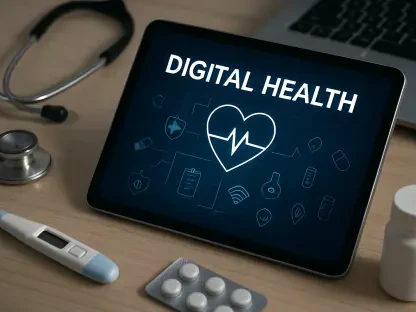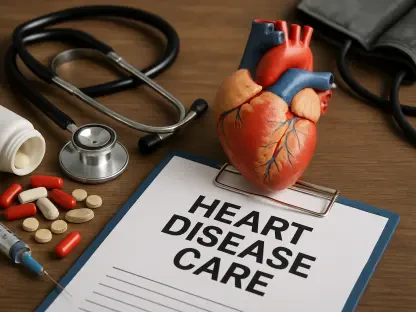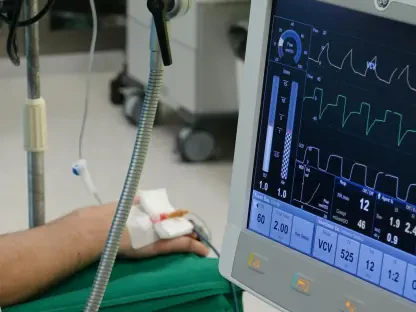In a world increasingly reliant on specialized services, the Healthcare Contract Research Outsourcing (HCRO) market is poised for significant growth over the coming years. Analysts predict an extraordinary expansion from $73.11 billion to $165.16 billion as the market experiences a compound annual growth rate (CAGR) of 8.8% through 2033. This dynamic industry involves third-party organizations that manage clinical trial assignments, regulatory tasks, and data management while offering healthcare companies cost-effective solutions, access to unparalleled expertise, and rapid drug development timelines. Key market drivers include escalating research and development investments, the intricacies of clinical trials, and the surge in demand for personalized medicine, especially in underserved and emerging regions. These factors combine to create a robust ecosystem primed for innovation, ultimately transforming how healthcare solutions are developed and delivered worldwide.
Expansion in Market Segments
The HCRO market consists of a diverse array of service segments that cater to pharmaceuticals, biotechnology, and medical devices. Clinical research services currently dominate this landscape, as they are pivotal in implementing comprehensive testing and utilizing advanced medical expertise. Alongside these services, preclinical research, regulatory compliance, and data management play essential roles in establishing the efficacy and safety of drugs. Moreover, specialized services, such as medical writing, facilitate regulatory submissions and scientific publications, amplifying the significance of contract research organizations (CROs).
Drug safety services also emerge as crucial for post-marketing surveillance, ensuring that released drugs are continuously monitored for adverse effects. Added services like biostatistics and patient recruitment play indispensable roles in enhancing the efficiency and speed of clinical trials. The significance of each segment lies in its ability to address particular components of the drug development cycle, thereby driving holistic market growth. As healthcare needs evolve and become more intricate, demand for these services is set to intensify, leading to transformations in how these segments interact with traditional healthcare pipelines.
Navigating Challenges and Opportunities
While the HCRO market swiftly progresses, distinct challenges hamper its full potential. One of the primary obstacles is limited awareness of the benefits of contract research outsourcing, coupled with high service costs that may deter potential clients. Regulatory hurdles further complicate the landscape, requiring HCROs to comply with various jurisdictional standards and guidelines. In certain geographic regions, particularly those with underdeveloped healthcare infrastructure, market expansion remains sluggish due to these barriers.
Despite these challenges, remarkable opportunities continue to surface. Notably, oncology emerges as the predominant segment within the HCRO market, driven by the increasing incidence of cancer worldwide. Following closely are neurology and cardiology, fueled by the rising focus on neurodegenerative and cardiovascular diseases. Additionally, the infectious disease sector is witnessing rapid expansion, propelled by the development of vaccines and antimicrobial therapies, which is critical in the post-pandemic era where society is intensely focused on healthcare preparedness. Furthermore, the increasing prevalence of lifestyle diseases such as diabetes and obesity adds to the demand for clinical trials, shaping the future trajectory of the market.
Key Innovators and Competitive Dynamics
The HCRO market also exhibits a rich tapestry of competitive dynamics, with top-tier industry players harnessing cutting-edge technologies to stay ahead of the curve. Market leaders like IQVIA are at the forefront, leveraging big data analytics to generate invaluable healthcare insights integral to accelerating clinical development and producing innovative treatments. The competitive landscape is characterized by a combination of key innovators and smaller niche players, each analyzed for their potential to add intrinsic value to the market.
A comprehensive evaluation of this landscape reveals ongoing trends such as mergers, acquisitions, and market fragmentation, all contributing to a bustling industry environment. These corporate maneuvers not only consolidate expertise and resources but also facilitate the diversification of services offered. As competition intensifies, companies strive to distinguish themselves through unique value propositions that resonate with healthcare providers seeking efficient and effective outsourcing partnerships.
Looking Ahead
The HCRO market is a multifaceted domain offering various services tailored to pharmaceuticals, biotechnology, and medical devices. Clinical research services are currently at the forefront, crucial for applying comprehensive testing and employing sophisticated medical expertise. Other critical components include preclinical research, regulatory compliance, and data management, all vital for demonstrating the effectiveness and safety of pharmaceuticals. Specialized services, such as medical writing, aid in regulatory submission and scientific publication processes, underscoring the importance of CROs.
Also significant are drug safety services, pivotal for ongoing post-marketing surveillance to track any adverse effects of drugs. Additional components like biostatistics and patient recruitment are essential for boosting the efficiency and speed of clinical trials. Each segment contributes uniquely to the drug development cycle, fostering overall market growth. As healthcare demands become more complex, the need for these services will likely escalate, driving transformations in their interactions with standard healthcare systems.









